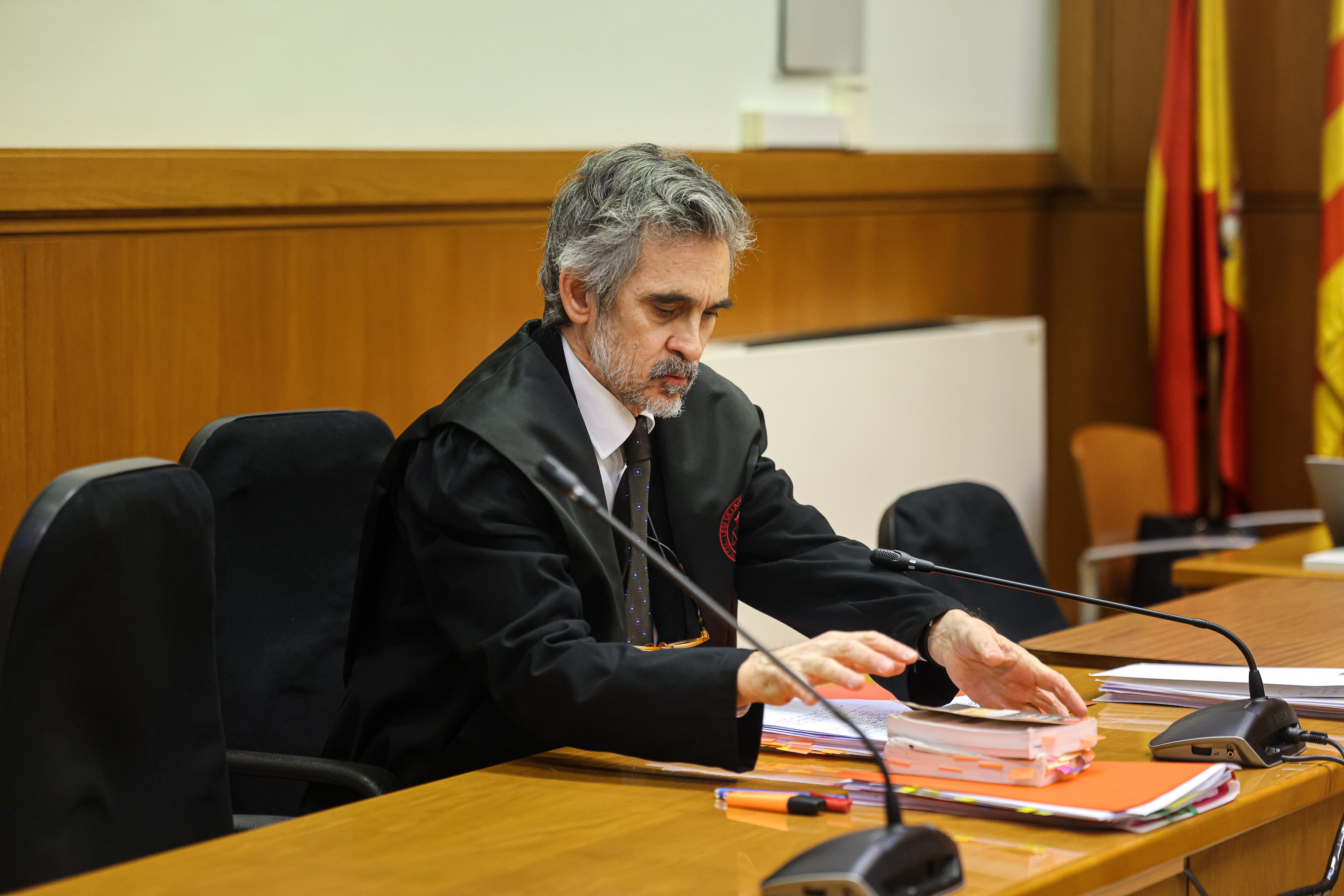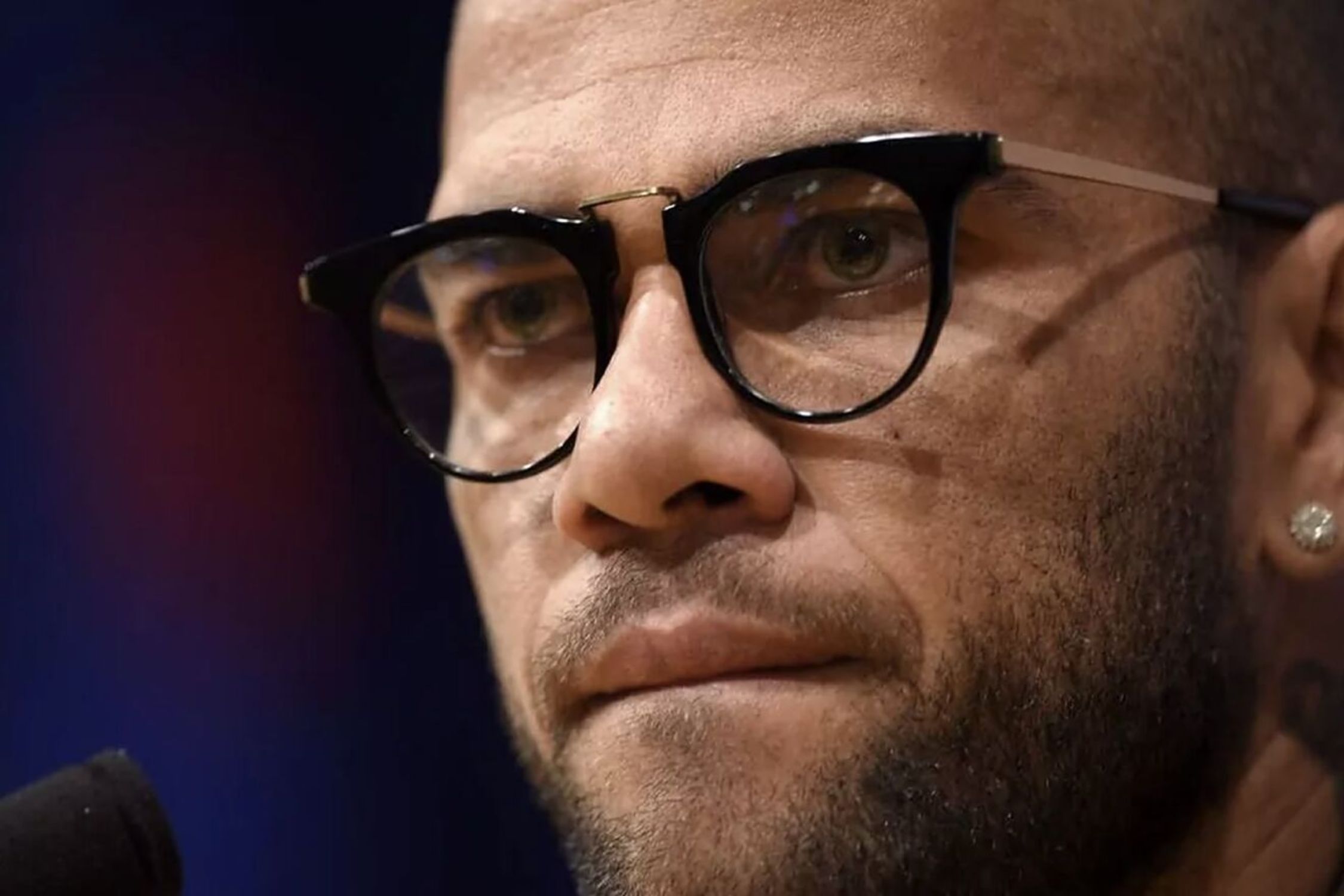Brazilian footballer Dani Alves will remain in prison. That was the announcement this Tuesday morning as the judges of Section 3 of the Barcelona Audience rejected the appeal presented by Alves's defence lawyer, Cristóbal Martell, requesting that his client be released on bail or with rigorous control measures. The court, with judge spokesperson Carme Guil at the head, agreed with the investigating judge of Barcelona court 15 that the risk of Dani Alves leaving Spain, and thus evading justice, is high.
In a thirteen-page ruling, judges Eduardo Navarro, Myriam Linage and Carmen Guil rejected the requests that Martell made to try to allow Dani Alves to leave Brians 2, the prison about 40km from Barcelona city where he has spent the last month. It should be remembered that the 49-year-old ex-footballer is accused of sexual assault on the night of December 30th to 31st at the Sutton nightclub in Barcelona. A 23-year-old woman reported the attack, saying that he had locked her in a toilet and sexually assaulted her there. In the court resolution that rejects releasing Dani Alves, maintaining his provisional prison with the same measures as when he was arrested by the Mossos d'Esquadra thirty days ago, the judges explain some of the reasons why, according to them, the risk of Dani Alves leaving Spain and not returning is "high".
Alves now knows much more
The judges confirm that Alves presented himself voluntarily to the Mossos d'Esquadra to be arrested on January 20th and that he knew perfectly well what he was being accused of, since the case had heavy media coverage. The collaboration went further at that point: he also provided his DNA. The judges say they "do not consider that this collaborative attitude is due to a feeling of impunity". But they do detail an important fact. The footballer was not aware at that point of how the Mossos investigation had progressed, as the Catalan police force had already been able to collect evidence from the scene and recover images from the security cameras. The judges believe that the understanding that Alves had at the time about what the police knew was very different from the reality, after "a thorough investigation", of the report of sexual assault reported by the 23-year-old victim. Now, the flight risk has multiplied, according to the court.
The judges also believe that Alves's "deep roots" in Catalonia - as an argument that he will not try to flee, as the defense maintains, is not entirely real. Although he is married to a Spanish woman and is registered as a resident in the Barcelona suburb of Esplugues de Llobregat, his entire family continues to live in Brazil: parents, siblings and children. "An examination of his family and work circumstances does not show any roots", the judges say. The dual nationality of Alves does not give any assurances to the court either. They state that holding both Spanish and Brazilian passports would make it difficult, in the event that he were to be deported from Brazil, for the authorities of that country to collaborate with the extradition of a national. "Alves's financial capacity allows him to leave our country and move to Brazil", where he would not be handed over to Spanish justice, according to the tribunal in the Catalan capital.
One of the key arguments of Alves's defence is that the world-famous sports star saw his financial capacity reduced by his arrest, when some of his sponsors withdrew from the contracts they had with him. However, the court's interlocutory ruling asserts that "it is not admissible" to minimize Alves' economic power. The former FC Barcelona player owns many companies outside Spain - the defence had only mentioned the two he has within Spain. Specifically, according to the judges, he owns about fifteen firms in Brazil, a fact that would give him economic "muscle" so that, in the event that he wanted to escape from justice, he would have something to live on in his country of birth.

He could escape, even without a passport
In the ruling, the three judges also rule out that the precautionary measures proposed by Cristóbal Martell could be used to avoid this "obvious" risk of escape. "Bail, no matter how high it was, does not imply a link with the judicial process; the accused possesses significant wealth", they say. Neither would daily presentations at the court and the withdrawal of his passport, according to the judges, be useful in preventing Dani Alves from escaping Spain. "He could leave without a passport in several ways and live without documentation in his own country, where he knows he will not be handed over," maintained the judge spokesperson Carme Guil. Neither would geolocation bracelets prevent him from skipping the border restrictions and fleeing Spain.
Judicial process could be fast
The judges also assure that, although less than two months have gone by since the alleged rape, the investigation is already well advanced and it is foreseeable - "or desirable", they state - that in a short time the entire investigation could be finished and a trial date could be given, a fact that would, they say, mean that his provisional prison would not exceed the "prescribed legal maximums".

